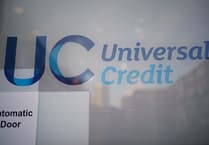People in Torbay have been warned they face steep rises in council tax if a local government shake-up sees them having to join forces with their neighbours.
The bay has the lowest rate of council tax in Devon, but if Torbay is joined to neighbouring councils such as South Hams and Teignbridge in the forthcoming revamp of local councils, bay bills will inevitably rise.
Bay councillors explained the pros and cons of all the options at a public meeting in Brixham.
The government is looking to get rid of one layer of local government, and that means axing the county council and district councils altogether.
Instead, Devon would be governed by a smaller number of large ‘unitary’ councils that would take on all responsibilities for things like highways, social care and recycling.
Torbay Council is already a unitary council, and favours staying that way. Of the local people who have responded to consultations so far, 64 per cent agree that Torbay should stay as it is.
All councils have been asked to consider their options before a deadline of November 28, when their preference must be submitted to the government. Ministers will then make a final decision, and the new councils will take control in May 2028.
Elections to the new councils will be held in May 2027, with councillors acting in a ‘shadow’ role leading up to the final switch a year later.
Councils around Devon have come up with a variety of suggestions. Plymouth, which is already a unitary council like Torbay, wants to go it alone, spreading its boundaries to include parts of the South Hams.
District councils have signed up to a ‘1-4-5’ solution in which Plymouth goes solo and two new unitaries are created, one comprising Torbay, Teignbridge, South Hams and West Devon and the other comprising Exeter, East Devon, Mid Devon, North Devon and Torridge.
Now Exeter has declared its preference to become a unitary on its own, expanding to swallow up parts of Teignbridge, Mid Devon and East Devon in the process.
Torbay councillor Swithin Long (Lib Dem, Barton with Watcombe) told the public meeting: “That’s a huge rock thrown into the pool.”
The government had originally stipulated that any new unitary councils should have populations of 500,000 or more, meaning Torbay’s population of 140,000 would leave it well short, but ministers are expected to be flexible.
Torbay Council leader David Thomas (Con, Preston) told the Brixham meeting: “I asked the minister if this was a dead duck, and I was wasting my time. The minister’s response was that the government has not set a minimum level and all options will be looked at.”
The bay’s other options are a Torbay and South Devon council based on the boundaries of the local NHS trust; the 1-4-5 model and a single unitary covering the whole of Devon, which critics say would be too big to serve local communities effectively.
On council tax, Cllr Darren Cowell (Ind, Shiphay) told the meeting: “Torbay has the lowest council tax, and it will go up if we join with other councils.”
The meeting heard that bills would go up gradually over a seven-year period and Cllr Long warned: “The only way is up!”





Comments
This article has no comments yet. Be the first to leave a comment.